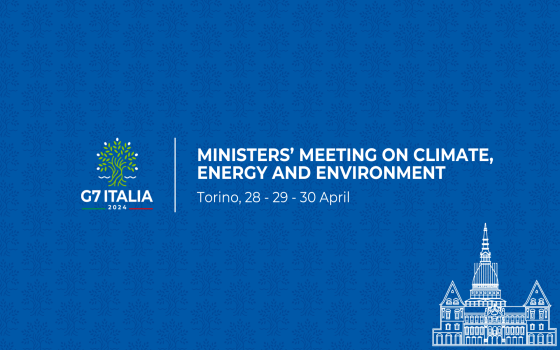
The European Commission participates today in the G7 ministerial meeting in Italy on climate, energy and the environment. It aims to accelerate emissions reductions, ensure the security of energy systems and the economic development of countries.

- Europe and Arabs
- Monday , 29 April 2024 11:49 AM GMT
Brussels: Europe and the Arabs
The European Commission in Brussels said that three members of the European Union's executive body will participate today, Monday, in the work of a G7 ministerial conference to be held in Turin, Italy, on climate, energy and the environment.
According to what was issued by the Commission in Brussels, the members of the Commission, Ms. Kadri Simson, the Commissioner in charge of the energy file, Mr. Virginius Sinkevicius, in charge of the environment, oceans and fisheries files, and Mr. Wopke Hoekstra, in charge of the climate action file, will hold a series of talks with a number of ministers participating in the meeting.
The statement stated that Ms. Kadri Simpson will meet with Mr. Ken Saito, Minister of Economy, Trade and Industry of Japan. Meets with Mr. David Turk, US Deputy Secretary of Energy.
Mr. Virginius Sinkevicius will meet with Mr. Stephen Guilbault, Minister of the Environment of Canada; Meets with Ms. Marina Silva, Minister of Environment and Climate Change of Brazil; Mr. Christophe Pichou, Minister of Ecological Transition and Regional Cohesion from France; and Mr. Steve Barclay, Secretary of State for Environment, Food and Rural Affairs of the United Kingdom.
Mr. Hoekstra will meet with Mr. Gilberto Bechetto, Minister of Environment and Energy Security of Italy; Meets Marina Silva, Minister of Environment and Climate Change of Brazil; Meets Mr. Fatih Birol, Executive Director of the International Energy Agency.
The G7 Ministers' Meeting on Climate, Energy and Environment will be held in Turin from April 28 to 30 and aims to identify coherent, integrated and interconnected actions to address the ongoing climate, energy and environment crisis, with a particular focus on the most important issues. Areas and populations at risk.
According to the Intergovernmental Panel on Climate Change, addressing the climate crisis requires limiting global temperature rise to 1.5 degrees Celsius, reducing global greenhouse gas emissions by 43% by 2030 compared to 2019 levels, and reducing net emissions to zero by mid-century.
Moreover, it is a priority for the energy sector, which is responsible for about 80% of global emissions, to invest in a sustainable energy transition that can ensure the energy security of the system and the economic development of countries.
The G7 countries will discuss identifying appropriate technologies that can provide adequate energy supplies and ensure clean and sustainable energy for developing countries, with a particular focus on the African continent, in order to achieve net-zero emissions by 2050.
In line with the direction set by the G7 countries, it will be necessary to support the strategic link between energy choices and climate policies: identifying innovative technological solutions and financing to support climate action to ensure emissions reductions and economic development of countries.
The UN Climate Change Conference (COP28) was a historic achievement: it provided for the first time a path to reducing the use of fossil fuels in the energy sector to achieve net zero by 2050, and set out measures to limit temperature rise to within 1.5°C compared to pre-industrial levels. . .
In this context, the G7 Ministers' Meeting aims to achieve a breakthrough in strategic sectors to reduce emissions, such as renewable energy and energy efficiency, critical raw materials, sectors with heavy emissions and research and development for more sustainable nuclear energy through 2040-2050.
The approach that will guide the process to ensure a just and inclusive transition will include all members of society, especially the younger generations.
In addition, the aim is to promote an innovative model of cooperation between countries and public and private funders in order to accelerate investments. On environmental issues, the G7 discussions will focus on sustainable consumption and production, the circular economy and resource efficiency, the protection of marine and terrestrial biodiversity and ecosystem services, and the sustainable management of natural resources, including the sustainable use of land and water resources.
Over the past few years, G7 and G20 leaders have also highlighted the important role of cities in implementing innovative urban development approaches and creating a global transformation towards achieving the Sustainable Development Goals. These and other challenges facing a just and inclusive energy transition will be the focus of the G7 ministers’ meeting, which aims to adopt ambitious measures to accelerate emissions reductions, ensure the security of energy systems and the economic development of countries.


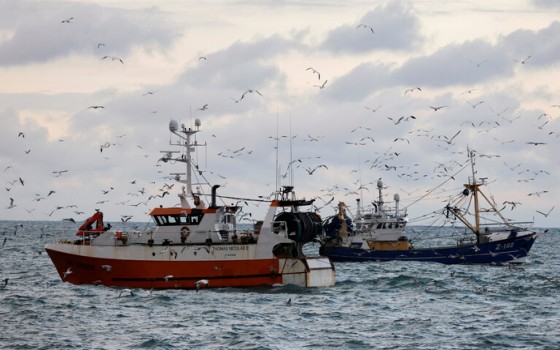

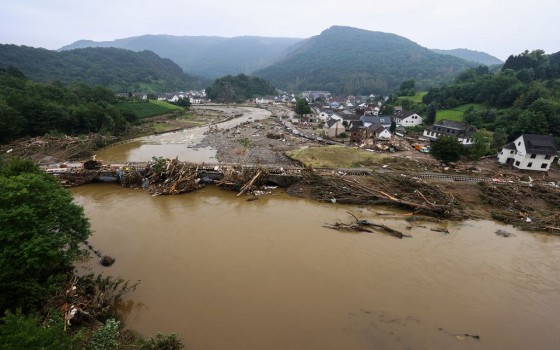
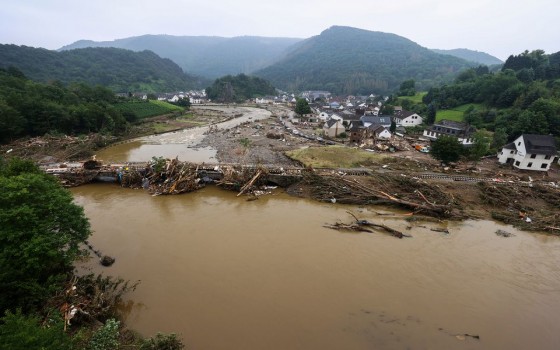


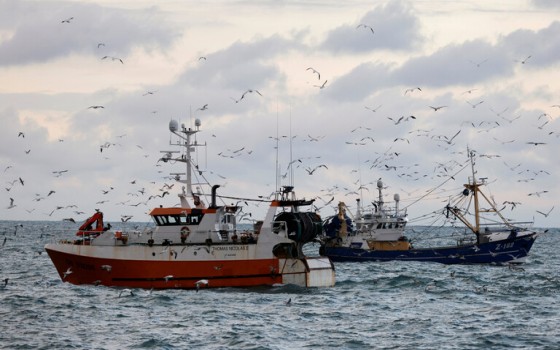



No Comments Found